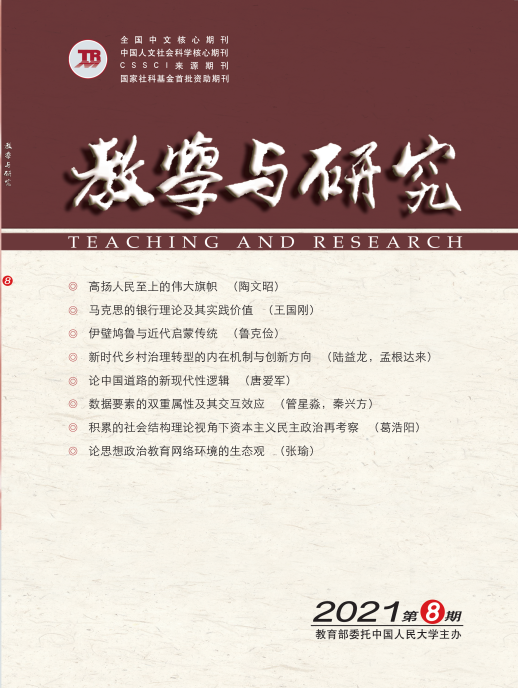|
|
The Data Factor's Dual Attribute and Its Interaction Effects
Guan Xingmiao, Qin Xingfang
2021, 55 (8):
68-76.
Data has become a factor of production. This occurs when history enters the era of big data, in which technologies such as artificial intelligence, cloud computing, and blockchain are used to collect, mine and process data. Data is a special product of labor, a derivative of other production factors. The data factor has a dual attribute: being physical or technical, and meanwhile being social. The social dimension of the data factor can not only materialize the technical dimension but also amplify it, ie. it has the multiplication effect on the allocation efficiency of other production factors. The social dimension is brought out via the medium of the technical dimension. Viewed purely from a technical perspective, this medium is strongly adhesive; after being bonded with other factors of production, it will only lead to physical reaction and not change the nature of other factors. However, once the two dimensions interact with each other, especially when combined with capital, the most adhesive factor in the market economy, a series of new social relations will then be produced based on this medium. Significant adjustments in social relations may ensue, involving both positive and negative externalities. Therefore, to get a scientific understanding of the dual attribute and its interaction effects of the data factor, it is necessary to take the following steps. One the one hand, we should promote institutional designs that amplify positive externalities, with a focus on facilitating public data sharing and improving commercial data development. On the other hand, we need to strengthen institutional arrangements that prevent and control negative externalities by emphasizing data supervision based on data types and levels as well as the rule of law.
Related Articles |
Metrics
|



